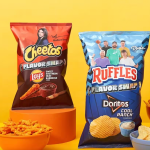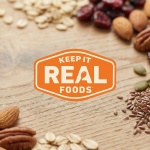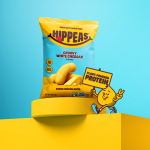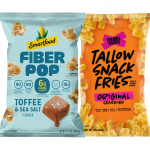Retailers Want YOU: Inside Chain Sourcing Events for Emerging Brands
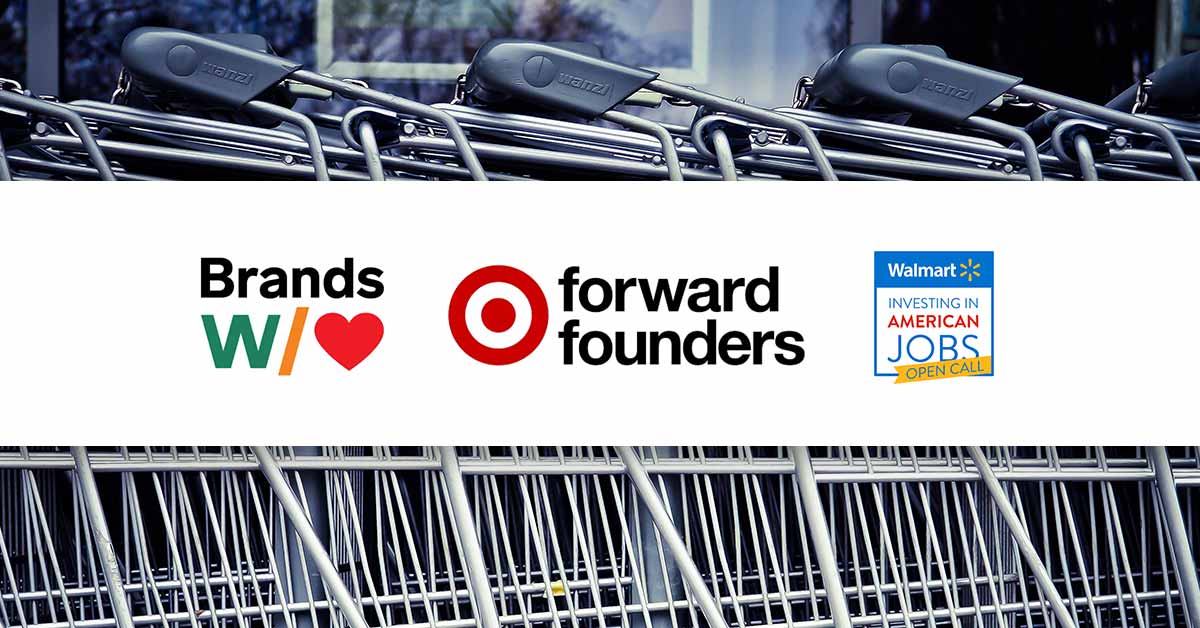
With approximately 30,000 new brands introduced in the U.S. food and beverage market every year, raising brand awareness and capturing the attention of large retailers can prove a challenging feat for startups. Meanwhile, retailers are increasingly pressed to find new and innovative items to draw in consumers.
They know they need them: According to a report by multinational strategy and management consulting firm McKinsey & Company, 73% of consumers who tried different brands intend to incorporate new brands into their routine. Gen Z and high earners are most prone to switching brands.
Enter retailer sourcing programs, which are designed to diversify the shelves of leading retailers with products from emerging brands. Over the past decade, numerous incubator, accelerator and pitch programs have cropped up across various retail channels, among them big names like Walmart’s Open Call pitch program, Target’s Forward Founders and Target Takeoff accelerators and 7-Eleven’s Brands With Heart showcase.
Now in its 11th year, Walmart’s Open Call pitch program has provided thousands of opportunities for small- and medium-sized U.S. businesses to become Walmart suppliers and has become the company’s largest sourcing event. Selected brands travel to Bentonville, Ark., to pitch their product(s) to a Walmart or Sam’s Club merchant in a 30-minute meeting. Finalists that are awarded a “golden ticket” land a distribution partnership with the retail giant.
According to Walmart, more than 85% of its shoppers have said it’s important to carry goods made in the U.S. Additionally, Walmart says it invests in U.S. manufacturing because it helps the retail chain provide customers with innovative products at affordable prices.
For 7-Eleven, the Brands With Heart showcase was built to identify and localize assortment with innovative brands that “provide a quality experience and meet the needs of the on-the-go consumer,” a spokesperson said.
Selected brands participate in an in-store test at select 7-Eleven, Speedway and Stripes stores located in the brands’ respective regions. The fan-favorite brands from each market then move on to the Brands with Heart showcase, a two-day event where they present their products to a panel of 7-Eleven leaders. Winning brands then pair up with 7-Eleven leaders for coaching, mentoring and training to prepare them for the opportunity to secure a spot on participating store shelves across the country.
Target’s Forward Founders accelerator was constructed to help early-stage brands with fewer than six employees and a lifetime revenue between $5,000 and $500,000 prepare for retail shelves, while its Takeoff accelerator now assists mature CPG brands with existing traction in the retail space for long-term success.
The models may differ between retailers, but the primary goal is the same: to offer up-and-coming brands the experience, connections and credibility to establish a presence in brick-and-mortar stores.
We spoke with several brands that went through retail sourcing programs at Target, Walmart and 7-Eleven about their experiences and how the events benefited or did not benefit their businesses. The overall consensus? Don’t go into a program expecting in-store placement at the completion of the accelerator, showcase or pitch event. Rather, embrace the opportunity itself and its side benefits like raising brand awareness and establishing longlasting relationships with buyers.
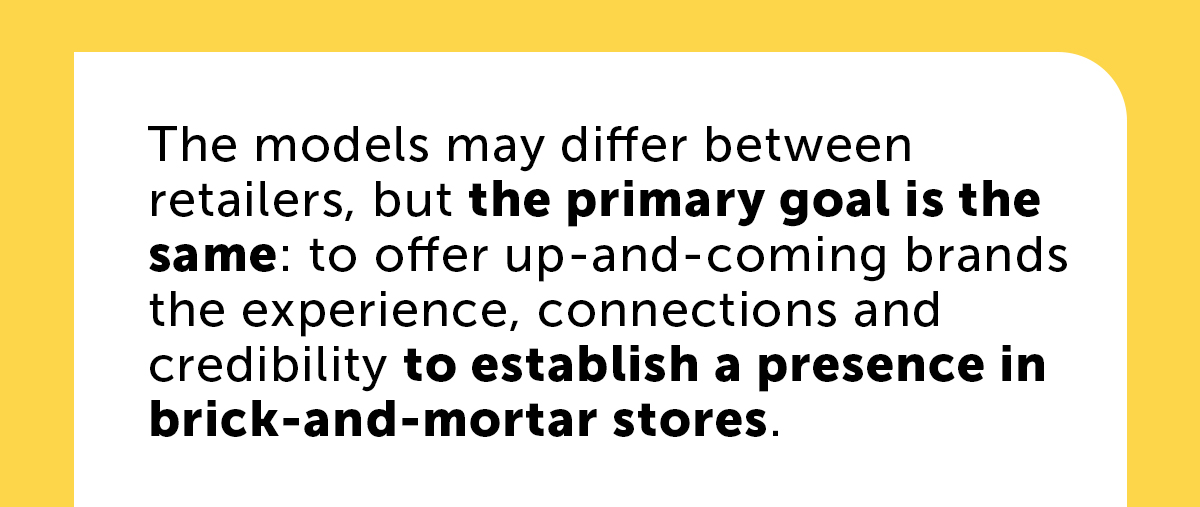
Brand Readiness
While brands might get a leg up in learning how to fit in with the retailer running a sourcing program, they also have to understand that it comes at the cost of different resources.
First of all, the programs take time. DEUX founder Sabeena Ladha, who was part of the Target Takeoff Food and Beverage 2021 cohort, estimates that her brand committed between 10 and 20 hours to the program. The accelerator consisted of educational workshops, meetings with buyers and networking with other participants – but gave her access to a stipend upon completion.
But there are real benefits. Target helps brands on important aspects of their business, like price pack architecture and scaling with co-packers, and it’s not just a pass-fail environment, she said.
“In the program, if you’re not ready, and they think you’re not ready for whatever reason, they will work with you, and you don’t have to go [into Target] right away. It’s pretty candid and transparent.”
Authenticity is crucial to getting into the program (and the host retailer itself). Emerging brand founders should build their case around the specific program that’s the right fit for them versus forcing their brand to fit into certain constraints, Ladha said.
“When we were presenting with Target, you could immediately see light bulbs, like ‘Yeah, this makes sense,’” she told Nosh. “[Deux’s primary audience] is a millennial woman and we skew slightly younger, sometimes Gen Z, so we’re able to bring that consumer into Target because they’re interested in that customer as well.”
She continued, “It makes everything a lot easier if your consumer and their customer are aligned.”
Willingness to Pivot
One advantage of an incubation program is that founders can get a handle on the kinds of work they need to do if they plan to eventually work with the host retailer. That can help down the road, even if they don’t get into the store right away.
For Two Fish Foods – the CPG arm of Chicago-based restaurant Two Fish Crab Shack – this came in the form of additional certifications and food safety audits following Walmart’s Open Call last year. Walmart has its own unique food safety standards to which brands must adhere, said founder Yasmin Curtis.
“After [getting the golden ticket] is when the real work happens. Walmart’s regulatory team makes sure you are in compliance with its standards and are doing your due diligence,” said Curtis. “Part of our due diligence is our food safety certification, as we’re a seafood company.”
Now that it’s successfully completed the certification and food safety audits, Two Fish Foods is gearing up to launch its frozen seafood boils in roughly 500 Walmart stores on October 9.
Brands also find a chance to innovate just by being able to go deeper into stores’ hierarchy than if they were working from the outside. When Molly Blakeley of Molly Bz participated in Walmart’s Open call last year, she secured a golden ticket that placed her large gourmet cookies on store shelves in the cookie and cracker aisle. However, during a second pitch meeting for the retail chain’s Grab & Go section, she was told she couldn’t have the same product in a different aisle.
So, Blakeley proposed the brand’s other product line – bite-sized Bobadoodles – to the retailer for the section, earning a second golden ticket.
“Be prepared to pivot. If they say this is too big and we can’t do this in this size – it’s Walmart, so we say we’d be happy to make it in a different size. There’s always a way to pivot,” said Blakeley.
Similarly, DEUX went through Target Takeoff planning to launch its flagship cookie dough at the mass retailer. But as conversations progressed, buyers said the price point (SRP $9.99) of the jarred product was too high. As a result, Ladha pitched the brand’s Donut Holes (SRP $3.99), which are now available in approximately 267 Target locations nationwide.
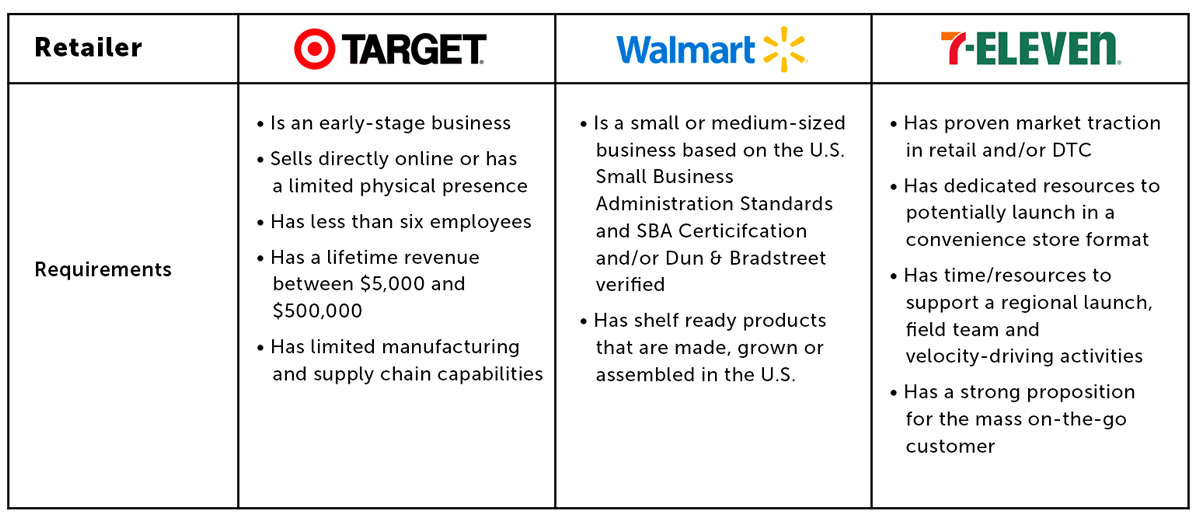
All Eyes on You
Whether or not emerging brands land spots on retail shelves, these incubator and accelerator programs have another side benefit: they offer startups the opportunity to raise brand awareness.
Though gourmet honey bar producer Bon Bee Honey didn’t expand with 7-Eleven on a large scale following Brands With Heart due to obstacles in the reorder/restocking process outside of the brand’s control (it is currently available in select locations through Colorado), CMO Kendra Bennett said the brand’s experience at the showcase has given its products an “invaluable seal of approval” that has been noticed by numerous other retailers, including other c-stores across the country. Over the past few months, Bon Bee has drop-shipped over 500 orders to convenience stores nationwide and gained planogram placement in several chains.
“My advice is to leave no rock unturned and pursue 7-Eleven’s Brands with Heart program and other similar opportunities. Best case scenario is that you pass the gauntlet unscathed and launch nationally with 7-Eleven. The worst case scenario if you are accepted into the program is that you build lasting relationships with incredible people at 7-Eleven,” said Bennett.
Meanwhile, Chicago-based Stellar Granola, which took part in Target’s Forward Founders in 2023, said the accelerator helped the brand realize the mass retail channel is not one it’s looking to pursue in the near future. Rather, the brand will dive deeper into local natural channel stores.
“I was kind of naive to how expensive it is to bring a product to a mass retailer, as the retailers we’ve been on shelves with for four years are all local and small grocers, so there are no fees associated with being on shelf,” said Stellar Granola founder Emily Knapp, adding that learning the ins and outs of mass retail was worth the time commitment.
Doughp, a Las Vegas-based edible cookie dough brand, went to 7-Eleven’s 2023 Brands with Heart showcase hoping to launch an exclusive single-serve product with the world’s largest convenience store chain. The company didn’t have a printed prototype of the single-serve SKU at the time of the event, so it displayed clear packaging of the right-sized unit next to a larger unit to demonstrate what the branding would look like.
Despite positive interactions and communication, Doughp CEO Israel Moreira reported that the product did not ultimately gain distribution. While he noted some challenges in the communication process, Moreira acknowledged that the experience provided valuable exposure for the brand.
“There’s no guarantee [of distribution]. Participate for exposure. More expos, more demos, and all of that help us as a company and a business, but we didn’t actually secure distribution,” said Moreira.
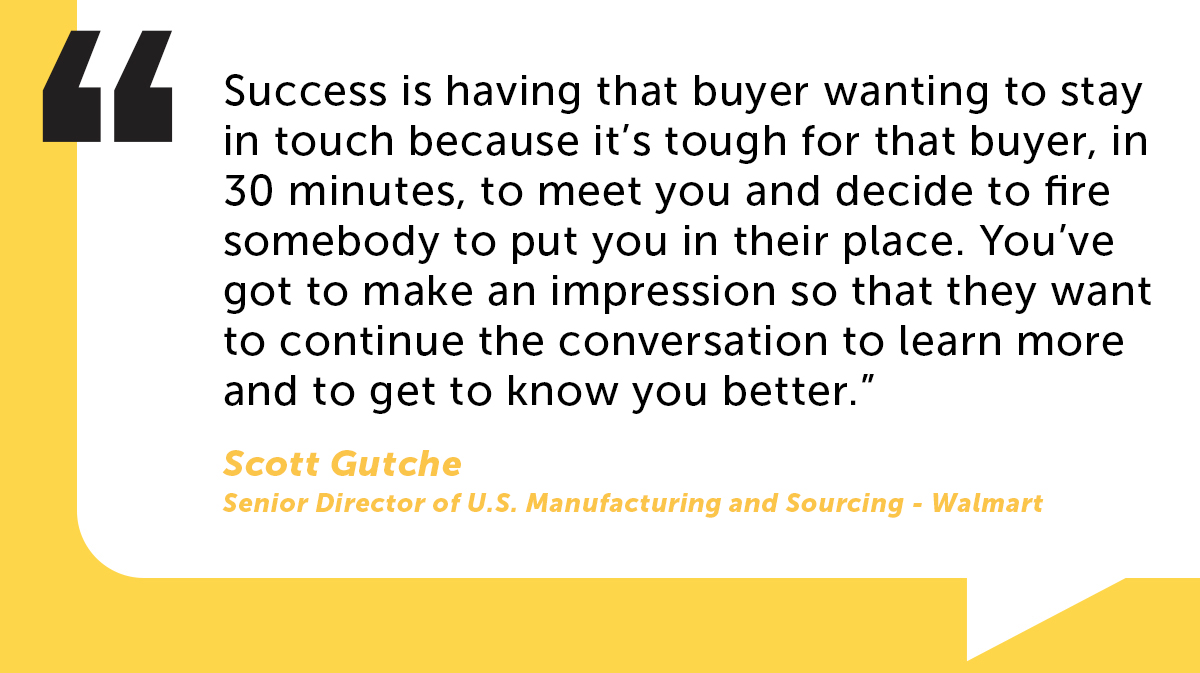
Persistence is Key
As the saying goes, if at first you don’t succeed, try, try again.
The first time Blakeley applied for Walmart’s Open Call program, she was rejected. The following year, when her assistant secretly applied and Molly Bz was accepted, the brand emerged victorious from the pitch program with not just one but two golden tickets – landing its gourmet cookies in the Grab & Go section and the cookie aisle.
Ladha echoed the sentiment, saying, “If you’re afraid that you won’t have the time, you can find it. And keep trying, even if you don’t get in the first time – whether it’s year one, year two, or year three [in business], continue to try to get into these programs because they are beneficial.”
Establishing those relationships with key decision makers is a significant benefit of participating in retailer sourcing programs.
“Success is having that buyer wanting to stay in touch, because it’s tough for that buyer, in 30 minutes, to meet you and decide to fire somebody to put you in their place,” said Scott Gutche, senior director of U.S. manufacturing and sourcing at Walmart. “You’ve got to make an impression [so] that they want to continue the conversation to learn more and to get to know you better.”














